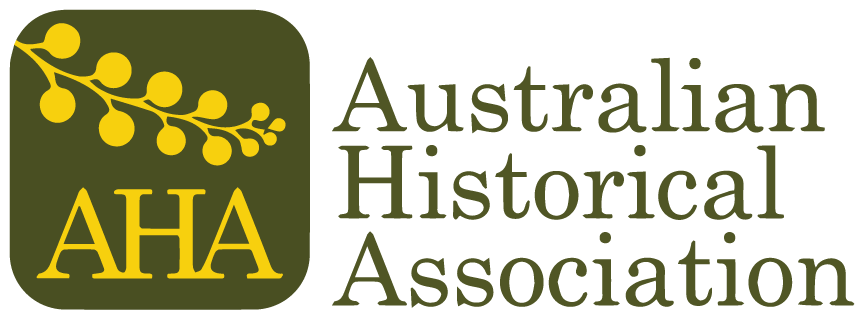JILLIAN ISOBEL ROE, 10 NOVEMBER 1940 – 12 JANUARY 2017
Historians and lovers of history were shocked when they heard of Jill Roe’s death on 12 January 2017. At what is today the young age of 76, this beloved historian’s death is a terrible loss, personally and to the profession. There will be no more rigorously researched, witty, insightful books and articles, no more talks in her down-to-earth, wryly amusing, scholarly, wise voice. She will no longer be available to cheerfully steer the profession’s institutions and to inveigle others to join her endeavours.
Jillian Isobel Roe was born in Tumby Bay, South Australia, in November 1940 to sheep and wheat farmer John Roe and his wife, Edna (formerly Heath), who was already suffering from the TB that killed her fourteen months later. In her final book, Our Fathers Cleared the Bush, published just two months ago, Jill describes this remote region and her upbringing, first by her maternal grandmother and her aunt and then with her three older sisters by her widowed father. Educated at the local one-teacher school and then at the Cummins Area School, she moved to Adelaide when she was fifteen, where she was taught by talented women teachers at Adelaide Girls High School.
At the University of Adelaide, Jill chose History over Geography and English because it seemed so democratic; but her life work combined all three interests. Graduating in 1962, she moved to the Australian National University, where she completed a Masters thesis inspired by the British urban historian Asa Briggs. This became her first book, Marvellous Melbourne: The Emergence of an Australian City (1974). Based at Macquarie University, where she was appointed Tutor in 1967 and remained until she retired as Professor Emerita in 2003, she was a major figure in the Sydney History Group from 1977 to 1995, editing Twentieth Century Sydney in 1980. She was also from her late teens interested in the study of religion. Her earliest academic article, in 1968, was on religious life in Melbourne, and it was this interest that won her the tutorship at Macquarie. In 1986 she published Beyond Belief: Theosophy in Australia 1879–1939.
Her major life’s work began, however, when she wrote Miles Franklin’s entry for the Australian Dictionary of Biography in 1981. In Franklin Jill found a biographical subject who shared many of her experiences and grappled with many of her quandaries. An ambitious, well-brought-up country girl, Franklin was an early ‘exodist’ who developed her feminist concerns and her brand of nationalism first in Sydney and then in Chicago, London and war-ravaged Macedonia, before returning to become a major figure in Australian literary life and leaving a lasting legacy in the Miles Franklin Literary Prize. Stella Miles Franklin: A Biography was published by Fourth Estate in 2008 and in the United States under the title Her Brilliant Career: The Life of Stella Miles Franklin by Belknap Press in 2009. This prize-winning biography, of over 700 pages, was preceded by the two volume My Congenials, Miles Franklin and Friends in Letters 1879–1954 (1993) and A Gregarious Culture: Topical Writings of Miles Franklin (2001, with Margaret Bettison) and numerous articles and talks about Franklin, including introductions to Virago’s reprint of Franklin’s 1909 novel Some Everyday Folk and Dawn (1986) and Marjorie Barnard’s Miles Franklin: The Story of a Famous Australian ([1967] 1988).
With her turn to historical biography, Jill became more and more involved with the Australian Dictionary of Biography. Her companion since the early 1970s, the historian Beverley Kingston, had been on the ADB’s New South Wales Working Party since 1970 and has been its chair since 1996. In 1984 Jill was invited to join the ADB’s Editorial Board and was its chair from 1996 to 2006. In 2005 she was an associate editor of the Australian Dictionary of Biography Supplement, 1580–1980. In November 2016 I was honoured to present Jill with the ADB Medal for long and meritorious service in a ceremony outside her hospital room. She had already been made an Officer of the Order of Australia in 2007 and was awarded a Doctor of Letters by Macquarie University in 2013.
Jill was singularly lucky in her life companion. Since the early 1970s she and Bev Kingston have been a veritable ‘History Workshop’; since their retirements they have been an integral part of the community at Pearl Beach; and Bev has valiantly cared for Jill through the past year’s illness. Jill died at home of an undiagnosed neurological condition compounded by severe osteoporosis, both possibly exacerbated by the terrible fall she had at Harvard in 2009. Like Miles Franklin she had a gift for friendship and the Pearl Beach Hall was packed for her funeral with about 160 of her ‘congenials’, who were reminded by the speakers about the energy and generosity, as well as the wickedness and wit, of this ‘Elder’. Jill would have enjoyed her last seminar (as Bev dubbed the proceedings).
Professor Desley Deacon
(Image: Jill Roe, 1964. Photo by Susan Margarey.)
